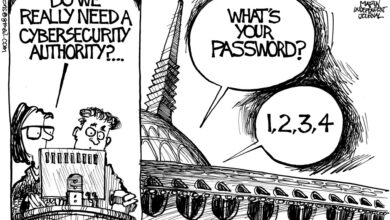Veteran cybersecurity training bill supported by Sen. King

The bill would create training and certificate programs for veterans interested in cybersecurity careers.
WASHINGTON, D.C., USA — Sen. Angus King, I-Maine, recently added his weight behind a bill that aims to train veterans who are interested in cybersecurity careers.
King sits on the Veterans Affairs and Armed Services committees and said people would be shocked at the number of cyberattacks that come into Maine and the U.S. more broadly.
While these threats evolve, he said our economy is short “tens of thousands” of workers in the cybersecurity field.
The Federal Cybersecurity Workforce Expansion Act would create programs aimed at actively attracting and training veterans or military spouses who are interested in pursuing a career in a tech field, with King placing extra emphasis on cybersecurity.
King told NEWS CENTER Maine during a video interview Friday that this bill would not only be helpful in their transition to civilian life but would bring their existing skillset to a complex industry that also serves our national interests.
“It’s meeting a huge national need [while] at the same time, providing a mission-based, profitable, well-paid job for veterans leaving service,” King said.
Leo Deon is the veterans program manager for the Maine Department of Labor, which connected 237 Mainers with jobs during last year’s Hire-a-Vet campaign. Deon is a veteran himself and welcomes any job help that could come with passage of the federal bill.
“They learn very quickly,” he said of veterans. “Most of the time, they learn under pressure. Their leadership skill – they know when to lead; they know when to follow.”
Dr. Henry Felch is also a veteran, and he directs the Maine Cyber Range at the University of Maine at Augusta. As attacks evolve, he trains students through hands-on cyber scenarios, and feels soldiers are assets here because, among other things, they’re used to taking simulations to the real world.
“I know in the military we would practice something, [then] we would get feedback about what went wrong, then we would practice again,” he explained.
All three men said the soldiers who choose these careers will also feed a sense of service that continues long after an honorable discharge.



